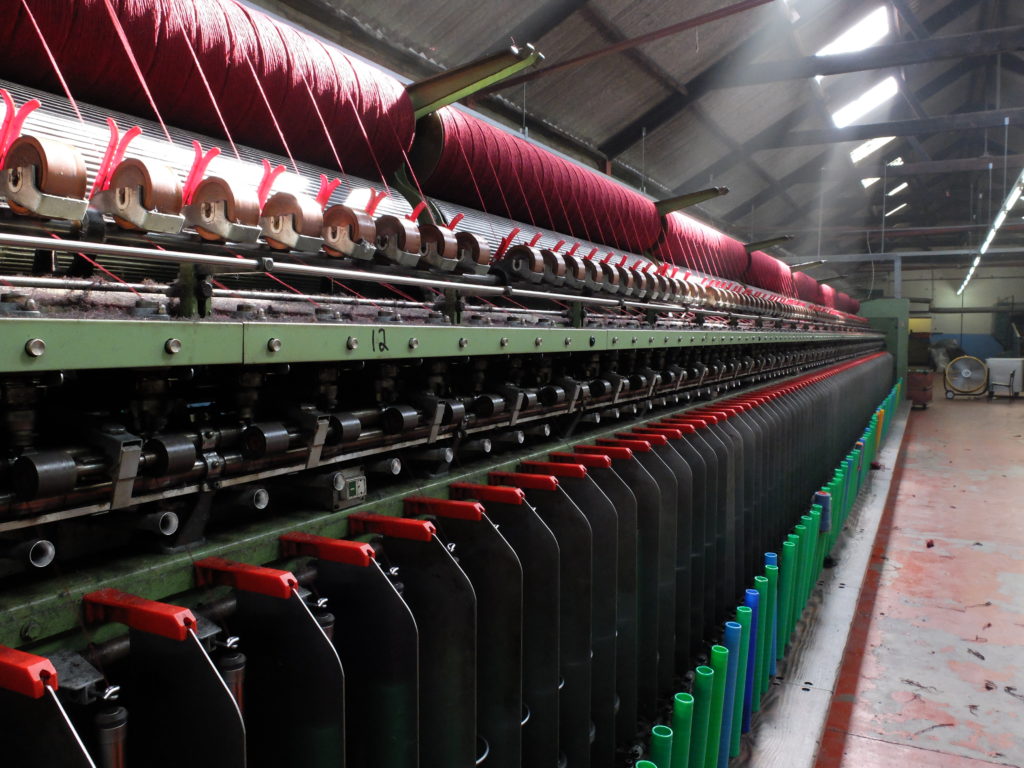Written by Dr Joana Nascimento, Social Anthropologist and Teaching Associate in the MSt in Social Innovation programme at CCSI.

Every time someone asks me ‘what is social anthropology, then?’, I’m reminded of the catchy opening line in a slim introductory book (1). ‘If you want to know what anthropology is’, the authors begin, ‘look at what anthropologists do’. They continue: ‘above all else, what anthropologists do is ethnography’.
While accurate, this is perhaps not most satisfactory answer, especially when you find yourself in a social situation where a clear, concise explanation might be more effective. Often, I briefly explain that anthropology is the study of people, of what makes us human; and that social anthropologists in particular study the complexity and nuance of social life by focusing on particular contexts, taking the time to learn about people’s lived experiences, perspectives, and relationships (and situating them within broader historical, cultural and political-economic structures and processes). Or something along these lines.
Only later on, if there’s still time, will I explain that anthropologists do this through ethnography – a concept that encompasses both a research approach (usually premised on long-term, immersive participant-observation); and a mode of representation (in written or other forms) that renders visible the particular kinds of knowledge emerging from ethnographic fieldwork research.
This approach allows anthropologists to learn about the way people speak, act and relate to each other and the world around them. Drawing on ethnography, anthropologists seek to understand people’s worldviews, and their role in world-making – highlighting the importance of considering, in a comparative and holistic way, the similarity and diversity of human experience, action and organisation across socio-cultural contexts.
The invitation to ‘look at what anthropologists do’ to find out ‘what anthropology is’ provides an opportunity to consider what is distinctive and valuable about social anthropology – from the discipline’s role in pioneering and refining ethnographic research, to the unique contributions that anthropological lenses can bring to relevant debates within and beyond academia.
The field of social innovation, with its focus on addressing complex issues and bringing about social change, has highlighted the importance of drawing connections between theory and practice, and the significance of human-centred approaches. In this context, I suggest, social anthropology can offer particularly relevant insights.

So, what do anthropologists do then?
While other social scientists have also drawn on ethnographic research, anthropologists are known for pioneering and developing ethnography (2), making it central to the discipline. Distinctive in its comparative and holistic approach to the study of humanity, anthropology considers both the complex interplay between different aspects of socio-cultural life within specific contexts (e.g. religion, technology, kinship); and the diversity of human societies and cultures.
Pioneered in the early twentieth century by anthropologists like Franz Boas and Bronislaw Malinowski, ethnographic research aimed ‘to grasp the native’s point of view, his relations to life, to realise his vision of his world’ (3), and it was initially undertaken in small-scale societies. Contemporary stereotypes and popular depictions of anthropologists still draw on these early experiences of fieldwork. However, while early anthropology did focus primarily on rural, small-scale communities, often in contexts dominated by colonial powers, contemporary anthropology reflects the significant transformations and debates that have taken place within the discipline since then.
Ethnographic fieldwork remains at the core of anthropology, and many anthropologists still travel to distant places to conduct research. However, the discipline’s commitment to ‘make the familiar strange, and the strange familiar’ has seen anthropologists studying cross-cultural difference and social complexity in places near and far, rural and urban, ‘at home’ and in foreign places; engaging critically with the discipline’s early entanglements with colonial history; and reminding us of the role that anthropology has played in using empirical evidence to fight racism, sexism and ethnocentrism, redefining how we think about humanity (4) (5) (6).
Today, anthropology is taught in Universities across the world, shaping projects that demonstrate the versatility of ethnographic research. For instance, in the department of Social Anthropology at the University of Manchester, researchers are working on projects (7) that illustrate the discipline’s potential for addressing a diversity of relevant contemporary issues. From ethnographic research in West Cumbria (UK) exploring the ‘social dimensions of decommissioning nuclear power plants’ (8); to research into ‘community adaptations and knowledge sharing in Alaska and Siberia’ (9) regarding climate change-related environmental transformations. From studies examining ‘cultures of anti-racism in Latin America’ (10); to research into the ‘hopes, aspirations and anxieties about the future after Brexit’ (11) in England.
Despite their regional and thematic diversity, these projects share the discipline’s commitment to ethnographic research, allowing anthropologists to start from specific social contexts (often ‘small places’) in order to address and learn about ‘large issues’ (12) in a holistic way. This allows us to think critically through practices, institutions, concepts and categories that are often taken for granted.
Considering the material and social fabric
My own doctoral research was based on 13 months of ethnographic fieldwork in the Outer Hebrides of Scotland, focusing on the work, workers, and workplaces involved in the production of Harris Tweed. This trademark-protected woollen textile is exported to over 50 countries around the world, but it can only be produced in this small archipelago. My thesis examined the social, cultural, and political-economic implications of the Harris Tweed industry, locating it within regional and global histories, and advancing anthropological debates on belonging, resourcefulness, and work and labour in contemporary capitalism.
Moving to the Outer Hebrides for one year to undertake ethnographic fieldwork involved conducting participant-observation, interviews, archival research, language learning, and audio-visual recording. This long-term, immersive approach afforded unique (and sometimes unexpected) insights. For instance – my research drew attention to the inclusive possibilities that the concept of ‘islander’ held in this particular setting, suggesting alternative ways of thinking through notions of rootedness, ‘heritage’, and belonging. Proposing an expanded concept of productive work and labour, I foregrounded the active ways in which people of different origins and backgrounds navigated contemporary capitalism and island life, both making a living and becoming part of its fabric by participating and elaborating on local practices – in this industry and beyond.
My research also challenged widespread narratives about the novelty of labour precarity in so-called Western countries, locating contemporary experiences of work and life within particular regional and personal histories – and highlighting the significance of ethnographic research to understand the nuance of social and economic life across geographical and temporal scales. At the same time, locating the Harris Tweed industry within broader socio-cultural institutions, practices and beliefs revealed the place of its unusual production model and legal protection among other locally developed social systems aimed at furthering the ‘common good’, vital in an economically fragile region threatened by depopulation.

Worldviews, world-making and social innovation
Over time, the concept of ‘social innovation’ has taken on different meanings – from its association with radical social and political ideas in the 19th century; to its more recent usage to describe things as diverse as organisational forms, services, and social movements. Contemporary understandings of ‘social innovation’ emphasise its potential for addressing complex social challenges, transforming enduring structures and models – and possibly leading to significant, systemic change.
Social innovation highlights the role that people play in developing alternative strategies, ideas, and organisational forms, foregrounding creativity, resourcefulness and collaboration. In this context, practitioners and researchers can benefit from anthropological perspectives that identify not only generative social dynamics, but also the practical, material and ideological contexts, implications and difficulties encountered by people as they seek to ‘innovate’. Social anthropologists provide nuanced insights into a diversity of worldviews and processes of world-making. This involves examining not only how people see their place in the world; but also, their active involvement in imagining and shaping the world around them, with varying degrees of power to draw on and/or depart from enduring structures and processes.
Social anthropology provides lenses, tools, and forms of knowledge that illuminate what is often taken for granted – a vital step in identifying and transforming established structures, ideas and processes. It emphasises the need to embrace social complexity and socio-cultural diversity, devising ways of seeing, researching and describing that improve our understanding. Social innovation – as a field dedicated to addressing complex social challenges – can productively draw on these lenses, tools and insights to define original avenues for thought and action.

References
- Monaghan, J. and Just, P. 2000. Social and Cultural Anthropology: A Very Short Introduction. Oxford and New York: Oxford University Press, p. 13.
- Howell, S. 2018. ‘Ethnography’. In The Cambridge Encyclopedia of Anthropology (eds) F. Stein, S. Lazar, M. Candea, H. Diemberger, J. Robbins, A. Sanchez & R. Stasch. http://doi.org/10.29164/18ethno
- Malinowski, B. 1922. Argonauts of the Western Pacific. London: Routledge & Kegan Paul, p. 25 (original emphasis).
- Menand, L. 2019. ‘How cultural anthropologists redefined humanity’, The New Yorker, 19 August. Available at: https://www.newyorker.com/magazine/2019/08/26/how-cultural-anthropologists-redefined-humanity/ (Accessed: 22 September 2020).
- King, C. 2019b. ‘How One Anthropologist Reshaped How Social Scientists Think About Race’. Interview with Michael Martin for NPR (National Public Radio), 3 August. Available at: https://www.npr.org/2019/08/03/747909534/how-one-anthropologist-reshaped-how-social-scientists-think-about-race (Accessed: 22 September 2020).
- King, C. 2019a. Gods of the Upper Air: How a Circle of Renegade Anthropologists Reinvented Race, Sex, and Gender in the Twentieth Century. New York and Toronto: Doubleday.
- University of Manchester, Social Anthropology Department. (n.d.) The social impact of our research. Available at: https://www.socialsciences.manchester.ac.uk/social-anthropology/research/impact/ (Accessed: 22 September 2020).
- Kalshoven, P., Harvey, P., O’Doherty, D. 2018. ‘Holistic decommissioning in the nuclear industry’. The University of Manchester, The Beam nuclear and social research network – Projects. Available at: https://www.mub.eps.manchester.ac.uk/thebeam/2018/02/05/holistic-decommissioning-in-the-nuclear-industry/ (Accessed: 22 September 2020).
- Ulturgasheva, O., Rasmus, S., Morrow, P. and Bodenhorn, B. 2020. ‘Community Adaptations and Knowledge Sharing in Alaska and Siberia: Utilizing Indigenous Research Methods’. National Science Foundation, Awards. Available at: https://nsf.gov/awardsearch/showAward?AWD_ID=1424042/ (Accessed: 22 September 2020).
- Wade, P., Aguilo, I., Sa, L. 2020. ‘Cultures of Anti-Racism in Latin America’. The University of Manchester, Research Explorer – Projects. Available at: https://www.research.manchester.ac.uk/portal/en/projects/cultures-of-antiracism-in-latin-america-carla(0f54cbaa-cab4-4af0-b533-3aeda153aaf4).html (Accessed: 22 September 2020).
- Edwards, J., Evans, G., Hall, S. and Smith, K. 2019. ‘”Left-Behind” places: Everyday Hopes and Fears for the Future After Brexit in England’. The University of Manchester, Research Explorer – Projects. Available at: https://www.research.manchester.ac.uk/portal/en/projects/leftbehind-places-everyday-hopes- and-fears-for-the-future-after-brexit-in-england(f7833aca-d1e9-42b4-aeab-1549feeca256).html (Accessed: 22 September 2020).
- Eriksen, T. H. 1995. Small Places, Large Issues: An Introduction to Social and Cultural Anthropology. London: Pluto Press.


Leave a Reply